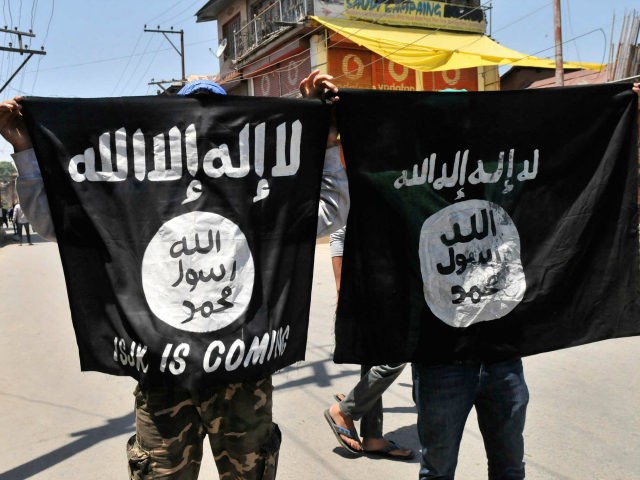Battle-hardened Islamic State (ISIS/ISIL) jihadists from Indonesia, the country with the largest Muslim population in the world, are expected to soon return to their homeland as the terrorist group loses territory in Iraq and Syria, prompting concerns among Southeast Asian authorities.
“As ISIS loses ground in consolidated territory there are growing fears that the group will lash out overseas, encouraging ISIS-inspired ‘lone wolf’ attacks. There is also mounting concern that Indonesian fighters will return home equipped with the training and combat experience, harnessed further by staunch ideological beliefs,” Arsla Jawaid, a former journalist and expert on foreign jihadi fighters, writes in an op-ed published by the Diplomat.
Since its formation in 2014, ISIS has disseminated propaganda and recruitment videos on social media aimed at persuading Indonesians, Filipinos, and Malaysians to travel to the Middle East to engage in jihad.
Jawaid notes:
While ISIS does not pose a distinct threat in the Southeast Asian region currently, the sheer number of Indonesians and Malay-speaking foreign fighters has been enough to form its own fighting unit in Syria, known as Katibah Nusantara. Formalized in September 2014, through a series of bayat (pledge of allegiance), Katibah actively recruits in the region, provides a social platform for recruits looking to settle in and connect with other ISIS members, as well as tutorials for logistical and tactical training.
…
Currently, there exists no formal ISIS presence in Southeast Asia and there is little to suggest a significant ISIS threat to the region. However, given the history and presence of militancy in the region, existing jihadi groups such as the Mujahideen Indonesia Timur (MIT) in Indonesia and the Abu Sayyaf Group in the Philippines have pledged allegiance to ISIS, raising concerns regarding the formation of a formal ISIS affiliate.
Indonesian authorities have cracked down on ISIS-linked jihadists in recent years.
The National Police Counterterrorism Squad and the National Counterterrorism Agency have detained ISIS sympathizers across Indonesia.
National Police Chief Tito Karnavian announced late last year that 170 alleged jihadists had been detained in 2016.
According to a December 2015 assessment by The Soufan Group, a New York-based international consultancy firm, some 900 Southeast Asian fighters, the majority from Indonesia, had traveled to Iraq and Syria to join jihadist groups, such as ISIS and the al-Qaeda affiliate there.
“Official estimates from Southeast Asian intelligence agencies placed the number between 1,200-1,800,” reports Jawaid. “While it is difficult to estimate precisely how many fighters from the region are currently participating, the Straits Times reported most recently that some 392 Indonesians are believed to be fighting for ISIS in Syria.”
Not all of the Southeast Asians who have traveled to ISIS-held territory are jihadists — nearly half (45 percent) are believed to be women and children who accompanied the fighters when they traveled to the Middle East.
The estimates include individuals who fought on behalf of the al-Qaeda affiliate in the region.
Indonesia is no stranger to terrorist attacks by Islamic extremists, including jihadists linked to Jemaah Islamiya (JI), an al-Qaeda affiliated group, and its offshoot organizations.
In January 2016, ISIS claimed responsibility for a deadly attack in Indonesia for the first time.

COMMENTS
Please let us know if you're having issues with commenting.